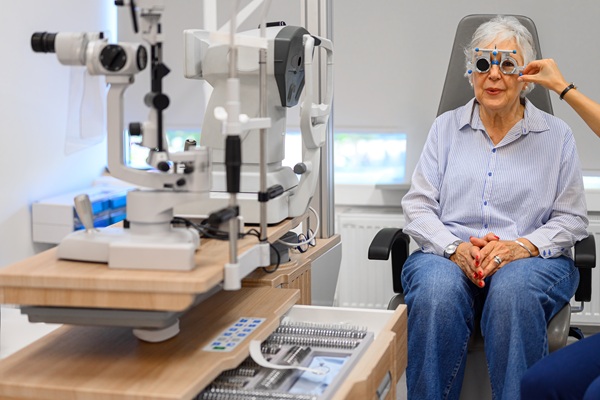6 Steps for Getting Used to Contact Lenses

Wearing contact lenses can be life changing for many who have worn glasses in the past. However, contacts can take some time getting used to. In order to get the most out of their wear, users should follow certain steps and tips to ensure comfort and cleanliness.
How to get used to contact lenses
Many people do not enjoy touching the eyes on a regular basis, which is one reason why it is hard to ease into wearing contact lenses. However, over time the process gets a lot easier.
1. Practice often
As with anything that is new, practice helps make perfect. When lenses are prescribed, the optometrist will give the wearer specific instructions on how to put them in and take them out. While these methods seem simple, the technique can be tricky at first. After some practice, however, using them becomes second nature. Always start with the same eye each time so the lenses do not get mixed up.
2. Gradually ease in
People who have not worn glasses before may find that wearing contacts makes them dizzy and headachy. This happens as the body adjusts to the prescription. Patients who have these symptoms should ease into full-time use. Wear them for a few hours and then switch to glasses. With small increases each day, it takes about a week until it feels comfortable to wear contacts all day.
3. Allow for extra time when putting them in and taking them out
Even though practice makes it easier, it is a good idea to leave extra time in the schedule in the beginning stages. It usually helps to set the alarm for a few minutes earlier, and it can make a big difference when putting in contacts since rushing and feeling stressed can make the process more difficult. The extra time also allows for proper cleaning.
4. Follow good hygiene practices
One of the concerns with wearing contact lenses is an eye infection, but following proper cleaning techniques can help prevent this. Before putting in and taking out the lenses, hands should be washed thoroughly with hot, soapy water and dried completely before touching the contacts. The lenses need to be cleaned and disinfected, as well, to prevent bacteria and impurities. Specific contact lens solution should be used.
5. Check lens alignment
It should not feel as if the lenses are even there if contacts are placed in the eyes properly, so if irritation persists, realignment is necessary. Take out and check for specks of dirt or if the lenses are inside out. If there is tearing, replace the contacts with new ones. If a comfortable fit still does not occur, schedule a visit with the optometrist to identify the issue.
6. Replace them on schedule
Contact lenses need to be replaced periodically. Some are daily, others are weekly and others may last for months. If not replaced, blurriness or an infection can occur. Figure out a good reminder for changing lenses on time.
Conclusion
Wearing contact lenses is not always comfortable at first, and it can take time to get used to the process. Patience and practice make a big difference, and before long wearers can relax and enjoy the benefits.
Are you considering contact lenses in the New Rochelle area? Get more information at https://brighteyesny.com.
Check out what others are saying about our services on Yelp: Read our Yelp reviews.
Recent Posts
An ophthalmologist visit becomes important when eye symptoms go beyond routine vision changes and signal disease, injury, or sudden shifts that need medical or surgical eye care. An ophthalmologist is a physician who diagnoses and treats eye conditions and performs eye surgery when needed.Many people search "optometrist" when they mean ophthalmologist, and the term often…
Cataract treatment can help you regain clearer vision and improved daily functioning. Professional care from an experienced optometrist offers benefits that can improve your long-term eye health and overall quality of life. The following guide outlines the three major benefits of cataract treatment provided by a trusted, experienced optometrist.During regular appointments with an optometrist, they…
Prescription glasses are an important part of clear vision and eye health. However, if you break or damage your glasses, it is important to act quickly to avoid further problems and restore your sight. Fortunately, taking care of damaged prescription glasses as soon as possible can save you time, money, and discomfort.The first step after…
Dry eye may start with mild irritation, but over time, it can begin to interfere with focus, comfort, and even quality of life. An optometrist can help when this condition becomes more than just a temporary annoyance. There are many potential causes of dry eye, including hormonal changes and seasonal allergies. With tools that reveal…


